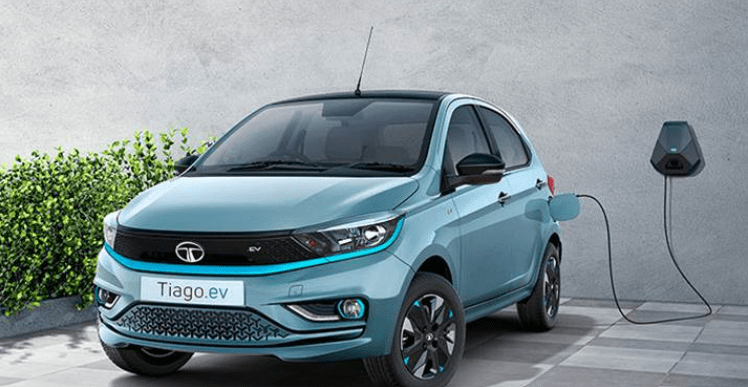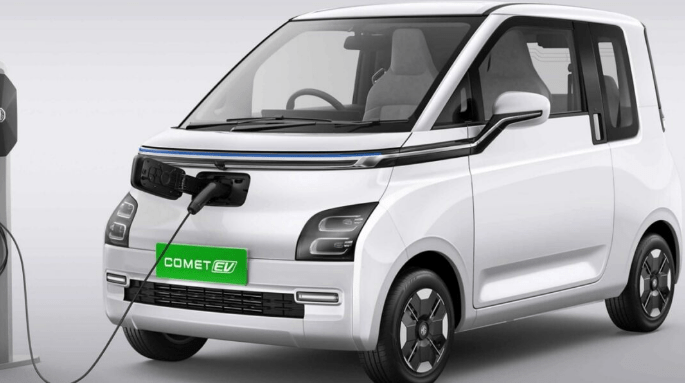Electric cars have been gaining popularity all over the world, and India is no exception. With the increasing concern for air pollution and the need to reduce carbon emissions, more and more people are turning towards electric cars in India. However, one major barrier to the widespread adoption of EVs in India has been their high cost.
Rise of Electric Cars in India by 2024
In this document, we will explore how the rise of electric cars in India has been impacted by the affordability factor, focusing particularly on electric cars in India under 10 lakhs and electric cars in India under 5 lakhs too.
Electric vehicles (EVs) are significantly more efficient than internal combustion engine (ICE) vehicles, consuming less energy and resulting in reduced fuel expenses for drivers. Moreover, EVs boast lower maintenance costs due to their simplicity and reduced likelihood of breakdowns, attributed to their fewer moving parts when compared to ICE vehicles. Here are the detailed factors responsible for the rise of EV cars in India.
1. Affordability as a Roadblock
One of the main reasons for the slow growth of EV sales in India is their high price. The lack of government subsidies and incentives, compared to other countries like China and Norway, has made EVs more expensive in India. Additionally, the production costs of EVs are still higher than those of traditional fuel-powered cars.
Affordable Electric Cars
However, with increasing competition in the market and developments in technology, we are now seeing a rise in affordable EV models in India. Companies like Tata Motors, Mahindra Electric, and MG Motors have introduced electric cars in India under 10 lakhs.
One such popular electric car is the Tata Tiago EV.

The Tata Tiago EV boasts an advanced permanent magnet synchronous motor, available in two battery pack options: 19.2kWh and 24kWh. The 19.2kWh pack offers an impressive range of 250km based on the Modified Indian Driving Cycle (MIDC), while the 24kWh pack extends that range to an estimated 315km. With a power output of 74bhp and torque of 114Nm, the Tata Tiago EV accelerates from zero to 60kmph in a swift 5.7 seconds.
Price of Tata Tiago EV
Tata Motors unveiled the Tiago EV, their most affordable electric vehicle, in India in September 2022. The electric hatchback is competitively priced between Rs 8.69 and Rs 11.99 lakh (ex-showroom, India). It offers four variants to choose from: XE, XT, XZ+, and XZ+ Tech LUX.
Another affordable option is the MG Comet EV. The price of the MG Comet EV starts at Rs. 7.98 Lakh and goes up to Rs. 9.98 Lakh for the top model. It is available in three variants, with the base model being the Pace and the top model being the MG Comet EV Plush.

Top 10 Cheapest EV in India
| Car | Price (Ex-showroom) |
| MG Comet EV | 7.98 – 9.98 Lakh |
| Tata Tiago EV | 8.69 – 12.04 Lakh |
| Citroen eC3 | 11.50 – 12.43 Lakh |
| Tata Tigor EV | 12.49 – 13.75 Lakh |
2. Impact on the Market
The introduction of these affordable EV models has had a significant impact on the electric car market in India. In 2020, despite the overall decline in auto sales due to the COVID-19 pandemic, sales of electric cars in India saw a significant increase of 20%, with more than 11,000 units sold. It has been more than 3 years since COVID and India has seen significant growth in the sales of EV cars. Also, many states in India are providing subsidies for electric cars.
Moreover, the Indian government has also taken steps to promote the adoption of EVs by announcing various measures like tax exemptions and incentives for both buyers and manufacturers. This has further boosted the demand for affordable EVs in the country.
3. Future Outlook
With more companies investing in the development of affordable EV models and government initiatives to promote their adoption, we can expect a significant rise in the number of electric cars on Indian roads. This will not only help reduce air pollution and carbon emissions but also make EVs a viable option for budget-conscious buyers.
Final Words
In conclusion, while affordability has been a major roadblock in the rise of electric cars in India, the introduction of affordable EV models and government support have paved the way for a more sustainable future. As technology continues to advance and costs decrease, we can hope to see a rapid increase in the adoption of electric cars in India in the years to come. So, if you are considering buying an EV in India, rest assured that there are now many affordable options available for electric cars in India under 5 lakhs. So, take the first step towards a greener future and join the growing community of EV owners in India!
Sources
- “Electric cars have become cheaper in the last two years: Here’s why” by Himanshu Goenka (https://auto.hindustantimes.com/auto/cars/electric-cars-have-become-cheaper-in-the-last-two-years-here-s-why-41614073903213.html)
- “Tata Motors launches electric Tigor at Rs 9.44 lakh” by Pritish Raj (https://auto.economictimes.indiatimes.com/news/passenger-vehicle/cars/tata-motors-launches-electric-tigor-at-rs-9-44-lakh/81047384)
Additional Information
- The Indian government has set a target of having at least 30% electric vehicle penetration on the roads by 2030. (Source: https://www.thehindubusinessline.com/economy/govt-pushes-agenda-for-30-ev-penetration-by-2030/article33923644.ece)
- The cost of owning an electric car in India is significantly lower than that of a petrol or diesel car, due to lower maintenance and fuel costs. (Source: https://evreporter.com/electric-cars-in-india-prices-features/)
- Apart from cars, the Indian government has also announced plans to electrify all two-wheelers under 150cc by 2025. (Source: https://www.bloombergquint.com/business/two-wheelers-under-150cc-to-go-electric-by-2025-says-govt) So, we can expect to see a surge in the number of affordable electric two-wheelers as well.
Takeaway
While affordability remains a key aspect of the adoption of electric vehicles in India, it is heartening to see that steps are being taken towards making them more accessible and affordable for the masses. With increasing competition and government support, we can look forward to a greener and more sustainable future in India. So, if you have been hesitating to make the switch to an electric car due to cost concerns, now is the time to reconsider and join the EV revolution in India!
Keep exploring and stay informed about the latest developments in the world of electric vehicles. Together, we can drive towards a better tomorrow, one electric car at a time.
Let’s keep moving forward towards a cleaner, greener, and more sustainable future for generations to come.


One thought on “Rise of Electric Cars in India by 2024”